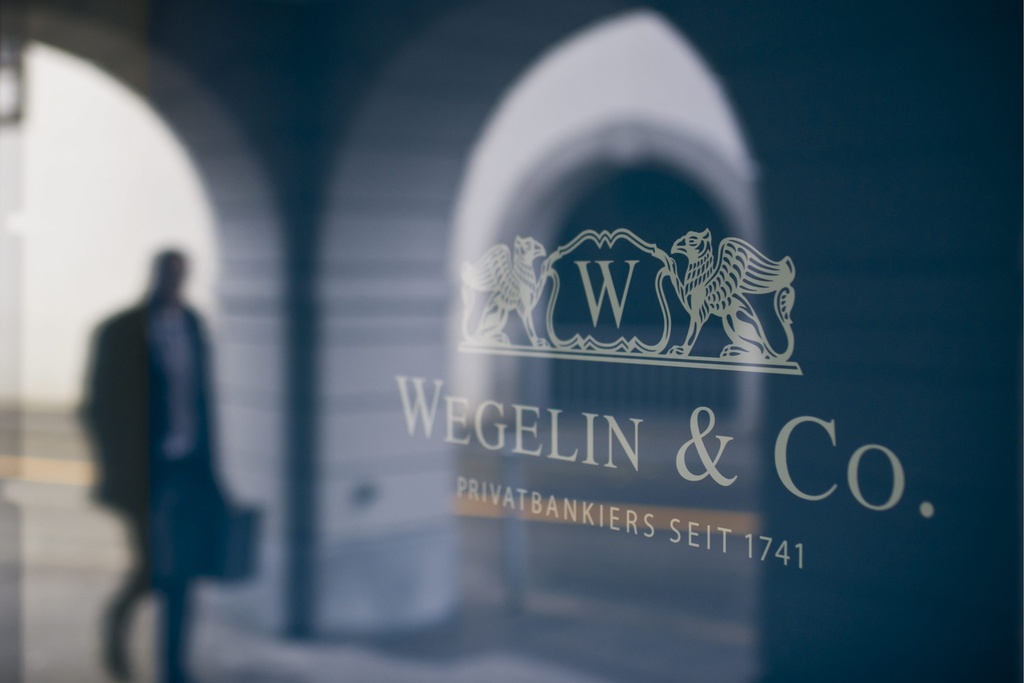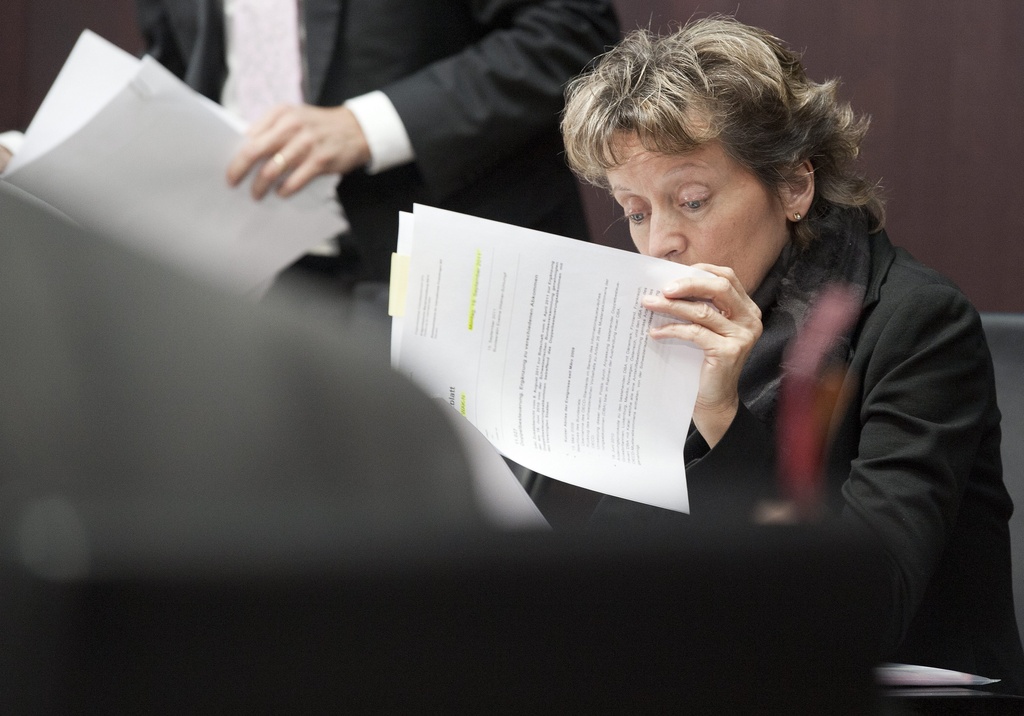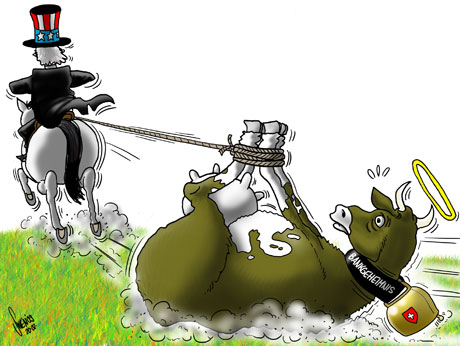United tax evasion defences start to crumble

All eyes will be on the year end results from Switzerland’s biggest banks this coming week, but thoughts will also be turned to the fallout from tax evasion scandals.
The criminal indictment of Wegelin on Friday and whispers that some banks favour unilateral negotiations with the United States has undermined the coordinated defence of banking secrecy.
UBS – the bank that set off the relentless US attack – and two other heavyweights under suspicion, Credit Suisse and Julius Bär, will hope to soothe jittery investor nerves with solid results.
But news that Switzerland’s oldest private bank, Wegelin, has been virtually destroyed by the first ever US indictment against a foreign bank will hardly boost sentiment in the Swiss financial sector.
Wegelin itself spoke last month of a possible domino effect if it was allowed to be chewed up by the voracious US justice system. Wegelin is one of 11 banks under scrutiny by the US Department of Justice (DoJ) and Internal revenue Service (IRS) for allegedly aiding tax evaders.
First case
“If you let one bank hang it would set a precedent for all of the 11 suspected banks and the Swiss financial sector as a whole,” Wegelin warned in January. A few weeks later, the bank was forced to sell off most of its silverware ahead of formal criminal proceedings in the US.
But US ambassador Donald Beyer told the Sonntagsblick newspaper that the Wegelin managers bore sole responsibility for what had happened.
“They should have known that these activities are illegal, and that the US tax authorities would react,” he said.
But he added that did not know why Wegelin sold off most of its business, since any likely fine would not have brought the bank down.
According to the SonntagsZeitung newspaper, Wegelin senior managing partner Konrad Hummler wrote to clients last week “regretting” what had happened, but maintaining that he and his partner Otto Bruderer had always acted correctly.
The bank had followed the instructions of the State Secretariat for International Financial Matters, which is handling negotiations with the US authorities on behalf of the Swiss government, he said.
Losing faith
Several Swiss media reports have accused some of the 11 banks of handing over data without the knowledge of the Swiss authorities – or at the very least of planning to carry out this operation.
“This could mean that some banks have lost faith in the ability of their government to protect them,” Hans Geiger, emeritus professor at Zurich university’s Swiss Banking Institute, told swissinfo.ch. “They appear to believe that they can get better results by going directly to the US administration.”
It is becoming evident that the US will only agree to a political deal once it has squeezed all it can from the criminal process. And there is no telling how long that could take.
Credit Suisse and Julius Bär were able to settle tax disputes individually with Germany last year by paying out compensation, but a deal with the US would likely be more complicated.
Litany of mistakes
The Swiss government’s firefighting role in the tax evasion episode has frequently drawn fierce criticism over the past three years.
Most observers agree that the authorities had little choice but to broker a deal once UBS bank had been caught with its fingers in the US cash register in 2009. But critics argue that surrendering the names of thousands of UBS clients left the financial sector wide open to more attacks.
Former UBS chief executive Oswald Grübel recently told the Neue Zürcher Zeitung newspaper that the Swiss government had sent out the wrong message in other ways too.
“If politicians suddenly speak of a ‘clean money’ strategy [as happened in the wake of the UBS scandal], it is very dangerous,” he said. “This implicitly states that we had a dirty money policy beforehand. The effect this statement had abroad was fatal.”
Grübel went on to blame politicians, regulators and bankers for reacting too slowly to the warning signals and then making “illogical” decisions. Part of the problem, he said, was that the banking community has not been cohesive enough.
“[Politicians and banks] will have to cooperate much better than they have before,” he said in the interview. “The Wegelin case is sad, but it could at least lead to the banks finally speaking with one voice.”
Abandon ship?
The one voice strategy looks increasingly out of reach, according to media reports that claim the Swiss finance ministry had to dissuade some banks from handing over raw data separately to the US authorities in recent weeks.
“It looks like an ‘every man for himself’ situation is developing,” Geiger told swissinfo.ch. “The banks would like this problem to go away because these negative headlines are harmful for their business.”
The harm appears to have been limited so far, with Credit Suisse and Julius Bär reporting healthy net inflows of assets last year. This contrasts to UBS, which saw wealthy clients withdraw their riches by the bucketful at the height of the bank’s problems.
This week’s results could shed more light on the issue, according to Bank Sarasin analyst Rainer Skierka.
“There have been no indications so far from either the banks or the markets that this is weighing down on them,” he told swissinfo.ch. “But the issue has gained momentum in the past few months, especially with Wegelin.”
“Most net new money growth has been generated in Asia and Latin America. Growth has been flat or slightly negative in Europe and the US.”
The US Department of Justice has 11 Swiss banks or the Swiss-based operations of foreign banks in its sights.
The clear threat is that criminal proceedings will be brought to bear on individual institutions unless they hand over evidence of their US operations over the past few years.
According to media reports, five of the 11 are foreign banks with Swiss registered operations.
They include HSBC private bank, three Israeli banks and one from Liechtenstein.
Of the Swiss suspects, Wegelin has been charged and is in the process of being broken up as a commercial entity.
The Neue Zürcher Bank closed down its private banking operations in 2009 after a former employee was indicted in the US. Last year, it shed more of its operations.
The remaining Swiss banks in the US line of fire are said to be Credit Suisse, Julius Bär and the cantonal banks of Basel and Zurich.
UBS became the first Swiss bank to fall foul of US justice when it was fined $780 million in 2009 for aiding and abetting tax evaders.
The following year, the Swiss government agreed to hand over nearly 4,500 UBS clients to the US authorities. The deal was ratified by parliament last year.
Two tax amnesties in the US – a third started in January – netted more than 30,000 tax evaders, enabling the IRS to gather evidence on more Swiss banks.
Several Swiss bankers and lawyers have been arrested or indicted in the US in the past few months.
These included three Wegelin executives who were indicted on January 3. On January 27 Wegelin announced it would sell most of its business to the Raiffeisen banking group.
On February 3, the US indicted Wegelin for aiding and abetting tax evaders, the first time a foreign bank has been formally charged in such a way in the US.

In compliance with the JTI standards
More: SWI swissinfo.ch certified by the Journalism Trust Initiative






You can find an overview of ongoing debates with our journalists here. Please join us!
If you want to start a conversation about a topic raised in this article or want to report factual errors, email us at english@swissinfo.ch.